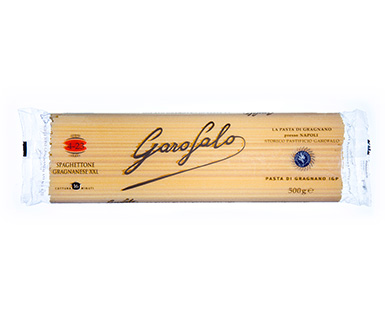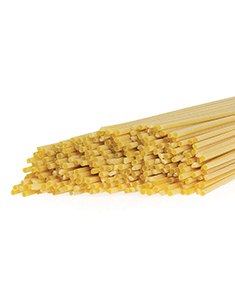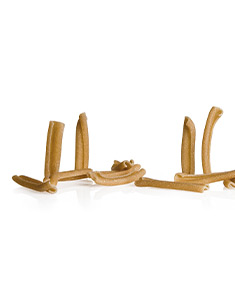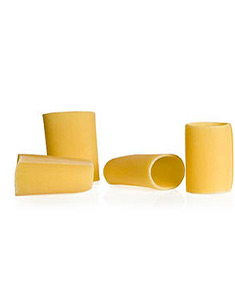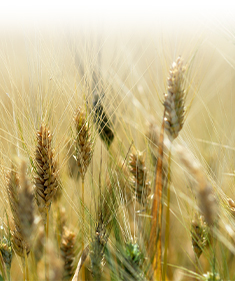
26-07-2021
Garofalo presents its first Sustainability Report
An important stage in the company’s journey to show how sustainability goes hand in hand with the work of the historic Gragnano pasta factory.
Pastificio Garofalo is proud to announce the publication of its first Sustainability Report, drawn up in collaboration with Lifegate, in compliance with the ‘Global Reporting Initiative Sustainability Reporting Standards’ defined in 2016 by the Global Reporting Initiative (GRI), the most widespread reference at the international level that promotes the development of voluntary reporting of economic, environmental and social performance.
The report is the second in the company’s history, but it has chosen to take the 2019 edition as a moment of internal awareness of its strengths and weaknesses, and then make the 2020 report public, once the most relevant issues that emerged from the first assessment have been addressed.
“2020 was an extraordinary year that left its mark on all our lives. And it is precisely in this very special year that we have decided to publish our first Sustainability Report, which, in a way, represents a challenge for us: by virtue of the values that have been our hallmark since our origins, namely quality, innovation, transparency, respect for diversity and passion, we wanted to respond with concrete gestures to the demands of our consumers, who are increasingly aware of and mindful of what they bring to the table,” comments Massimo Menna, CEO of Pastificio Garofalo. “All of this is consistent with our daily commitment to bringing unique and unmistakable pasta to our consumers’ tables.”
Through a materiality analysis process, which identified the most relevant sustainability issues for Garofalo and its stakeholders, the three main areas of action for Garofalo’s sustainability were identified:
– Safe and quality products thanks to raw materials of the highest quality that are selected with the utmost care and monitored and controlled at every stage of processing, according to a production process that draws on long-standing experience and is the result of continuous research and an original interpretation of taste.
– Focus on people in terms of both continuous dedication to its employees, whose commitment makes it possible every day to carry out activities in accordance with the company’s values, and close attention to the community, with which the pasta factory is in constant dialogue to create relationships of lasting value.
– Respect for the environment from which the pasta factory draws its essential resources, through its commitment to reducing its environmental impact, paying attention to energy consumption, emissions and the materials used, and to virtuous waste management.
HOW GAROFALO GETS THINGS DONE
For Garofalo, the focus on quality, traceability and food safety is embodied in continuous controls on products and processes, both in its own plant and at suppliers, an approach that is enhanced with information and awareness-raising activities directed at its consumers with a transparency project launched in 2018 with the website “comesifagarofalo.it/en“.
The semolina used to make Garofalo pasta is sourced from mills that not only guarantee quality but are also as close as possible to the area, with a view to making transport more efficient and minimise environmental impact. In 2020, Garofalo also acquired a storage silo facility located in Apulia, Italy, which will allow the company an easier selection of top-quality batches of Italian wheat. Today, in fact, the raw material procurement policy focuses mainly on grains from Italy and Arizona, the two geographical areas that currently guarantee Garofalo’s quality, respect for the environment, and the highest levels of food safety.
But Garofalo chooses for all its activities the best Italian producers and those that are as close as possible to the plant: in 2020, Italian suppliers represented 89.1% (against 85.3% in 2019) of the total expenditure with about 15% of suppliers from Campania.
PEOPLE
Garofalo has always endeavoured to ensure safety at the workplace, to promote an inclusive environment (in the last 2 years, Garofalo has been listed as one of the 20 finalists for the Diversity & Inclusion Brand Award) and to promote a healthy work-life balance. As of 31 December 2020, Pastificio Garofalo had 215 employees, an increase of 6.4% compared to 2019, thanks to the continued development of the business. There are 32 women employed at Garofalo, accounting for 14.9% of the workforce (+33.3% compared to 2019), with important decision-making roles in the Laboratory and in Production, despite the fact that these are historically male-dominated areas.
Despite the difficult year, recruitment in 2020 increased by 35.7% compared to the previous year: there were 19 new hires, 16 of whom – i.e. 84% of those hired – were under 30 years old, confirming Garofalo’s desire to make room for young people and to recognise the added value they can bring to the company.
THE ENVIRONMENT
The quality of Garofalo products is an essential priority that goes hand in hand with environmental awareness. Pastifico Garofalo is continuously looking for appropriate measures to reduce its energy consumption and to increase the use of alternative and renewable energy sources. In 2020, the plant absorbed 26,684,746 kWh of energy, of which approximately 71% was self-generated through the cogeneration plant, and 1.1% produced through the photovoltaic plant. As a result of increased production in 2020 to meet the growing demand for basic necessities such as pasta, the share of electricity purchased increased to 28% from under 20% in 2019. Accordingly, administrative steps have been taken to increase the self-generation capacity and thus exceed previous quotas, where the co-generator covered up to 90% of the electricity needs. Planned projects concern the installation of a new tri-generation plant and the expansion of the photovoltaic park, which will meet all electricity requirements and a substantial share of the thermal energy. Moreover, aware of the importance of product packaging materials in the food industry, Pastificio Garofalo has chosen recycled paper for its secondary packaging for almost 15 years. This comes from the pulping of the separate waste collection of companies and citizens in the Campania region. These materials are subject to a life cycle analysis (LCA) and certified by the Forest Stewardship Council (FSC), an association that identifies wood from responsibly managed forests. In 2020, 350 tonnes of CO2 equivalent emissions were thereby avoided.
For the primary packaging, however, the choice was made to use plastic, in the spirit of Garofalo’s uncompromising transparency. Plastic is also an optimal material for guaranteeing and preserving the chemical and physical characteristics of pasta and for ensuring food safety. This guarantees that consumers receive a product that remains unchanged from the moment it leaves the factory.
However, aware of the impact that plastic has on the environment, even though the plastic used by Garofalo is 100% recyclable, the company continues to search for alternative solutions. In the meantime, the pasta factory is committed to facilitating the end-user’s path to recycling by means of easily understandable communication concerning the disposal method.
In fact, Garofalo recognises the importance of responsible management of the waste produced in all its activities and seeks to encourage, where possible, the recycling of waste in order to reduce the landfill volume. The main share of waste concerns packaging material (plastic and cardboard), which is mainly sent for recycling.
Pasta does not generate large amounts of waste and even processing waste can be recovered, e.g., for the animal feed or pet food industries as by-products for livestock use. In 2020, 10,778 tonnes of waste were recovered, compared to 5,475 tonnes in 2019. Other virtuous circular economy projects moving in this direction include the pasta straws that Garofalo has been producing since 2015, supplying bars and restaurants, together with a recycled paper box for collecting the used straws. Since 2019, Garofalo has also been collaborating on a revolutionary food innovation project, I’mpasta, a kind of sourdough starter made with durum wheat or gluten-free wheat from leftover pasta, which gives life to various types of dough.
“We are aware that what we have done so far is only the beginning of a path of continuous development and improvement: we take this challenge as an opportunity, in the knowledge that we can contribute, with our simple daily actions, to building a better future for generations to come,” concludes Menna.
Read the reportYou may also like

Pasta Garofalo brings Unforketable to Youtube
Read the article
Napolicious. A special journey among Italian landscapes and tastes.
Read the article